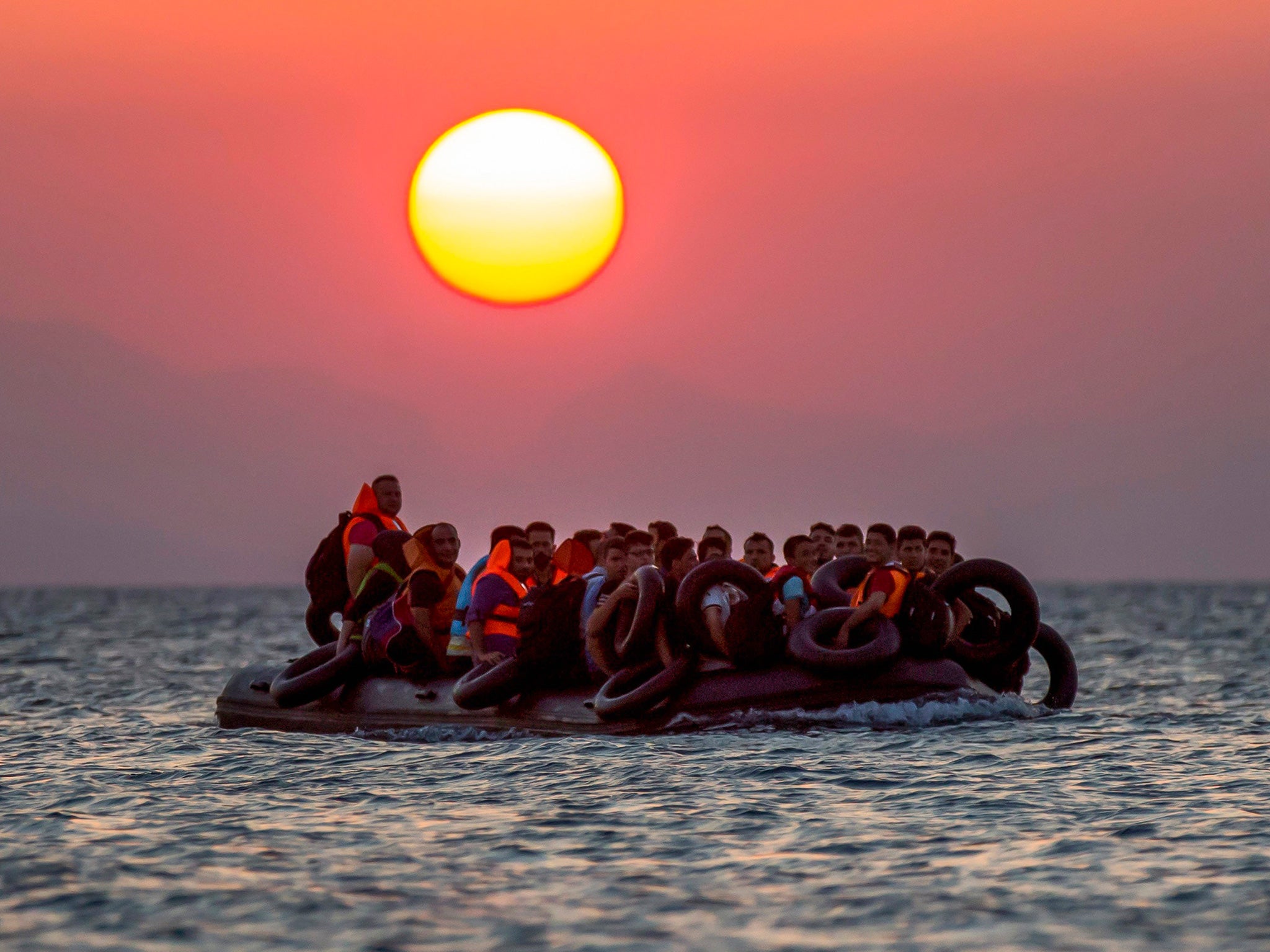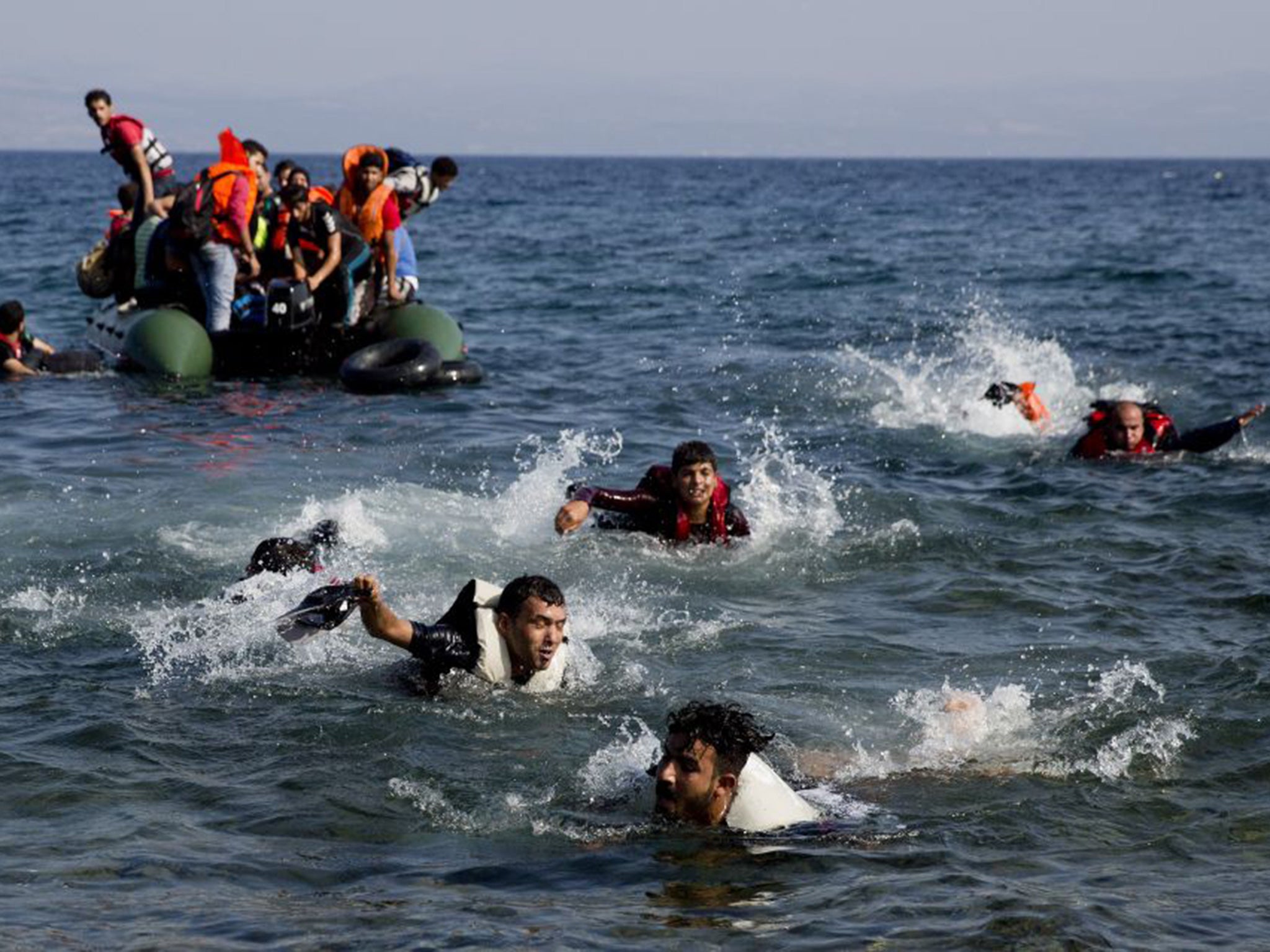Refugee crisis: Europe reflects on year of refugees as number of arrivals reaches one million
As 2015 draws to a close, there is little sign the continent is getting nearer to resolving the year's defining issue

Your support helps us to tell the story
From reproductive rights to climate change to Big Tech, The Independent is on the ground when the story is developing. Whether it's investigating the financials of Elon Musk's pro-Trump PAC or producing our latest documentary, 'The A Word', which shines a light on the American women fighting for reproductive rights, we know how important it is to parse out the facts from the messaging.
At such a critical moment in US history, we need reporters on the ground. Your donation allows us to keep sending journalists to speak to both sides of the story.
The Independent is trusted by Americans across the entire political spectrum. And unlike many other quality news outlets, we choose not to lock Americans out of our reporting and analysis with paywalls. We believe quality journalism should be available to everyone, paid for by those who can afford it.
Your support makes all the difference.More than one million people have arrived in Europe by irregular means this year, the International Organisation for Migration announced, in the biggest wave of mass migration in Europe since the aftermath of the Second World War.
Reporting a total of 1,005,504 arrivals by 21 December, the IOM said that the great majority – more than 800,000 – entered by sea into Greece.
It is the issue that has defined 2015 more than any other. And as the year draws to a close, there is little sign that Europe is getting nearer to resolving it in a decent manner. The moments of unanimity and accord have been rare.
Yet Europe cannot say it was not warned: the refugee crisis has been under way for decades. Every year, many hundreds have died trying to reach the European Union from the north coast of Africa. Europe turned to look, uttered words of concern, and went back to business.

Then the Syrian civil war broke out and, as it grew more and more destructive, refugees fled in their millions to Jordan, Lebanon and Turkey. Some reached the North African coast: Muammar Gaddafi, who had cynically turned the refugee tap on and off to suit his own purposes, was gone, and the pitiful boats tossed on the waves of the Strait of Sicily multiplied. But this was a problem for the bereaved, the Sicilian coast guard, the people of Lampedusa or the Italian government, because the Dublin Regulation stated that where an asylum-seeker first made landfall, there he or she must seek asylum.
It was not a problem for the rest of Europe – not one that demanded action. Then on 28 April something changed. On the island of Lesbos, Dimitrios Vatis and his staff were opening their seafront hotel for the season when they received their first visitors: not through the front door but on the beach.
“This was a small boat, with just 15 people on board,” said Mr Vatis’s daughter, Aphrodite. “There were kids on the boat, they handed them over to us. They were all wet and cold, so we opened rooms in the hotel for them and made them comfortable.
“I went home and got some of my children’s clothes, and we dried them and dressed them and soon they were running around. It’s hard to see these children in your own clothes – it’s a strange feeling.”

The Libyan coast is 180 miles of rough, open sea from Lampedusa. The crossing, in a leaky, overcrowded hulk, is mortally risky. Turkey, by contrast, is only five miles from the north coast of Lesbos. From the island’s tourist town of Molyvos, the Turkish shore is plainly visible. Boats with refugees have always come across, says Eric Kempson, an Englishman who has lived there for 16 years. “In the past there would be one or two boats a week,” he says.
But suddenly the numbers exploded. By September, 3,000 people were arriving every day. The population of the “nation of the displaced” – the world’s refugees – surged by many millions in 2014, and now, thanks to this quick and relatively easy passage, a fair fraction were heading our way. The IOM reports that Lesbos is now Europe’s principal informal gateway.
Europe found itself woefully unprepared for what its leaders euphemistically called “the challenge of the migrant influx”. The Dublin Regulation ensured that frontline states bore the brunt of arrivals. That bred complacency in the rest of the union. Europe’s maritime borders were essentially undefended, the responsibility of an EU agency called Frontex, which had neither the budget nor capacity to fulfil its role: nothing impeded the people-smugglers. A continent without borders was part of EU holy writ. So Europe woke up to find tens, then hundreds of thousands spilling across the continent towards the affluent parts – Germany and Scandinavia – believed most likely to make them welcome.
Politically speaking, a refugee crisis is a dead loss. The only parties to benefit are jingoists who exploit it to whip up popular paranoia. Leaders who want to do the right thing are hamstrung by the fact that it can only leave them less popular than before. That may explain why Europe has been so apathetic.
But then on 2 September a three-year-old boy called Aylan Kurdi slipped from his father’s arms as the rubber boat in which they were crossing from Turkey capsized. Later his lifeless body, face down in the sand, was photographed: the image went around the world, and that single picture transformed the way the crisis was understood. Suddenly the “barbarian armies” became what they actually were – a flock of desperate people who had lost their homes and now risked losing their lives.
The reaction was instantaneous. German Chancellor Angela Merkel declared the Dublin Regulation suspended, which meant that those landing in Lesbos could now legitimately dream of Berlin; she confirmed this by saying she expected Germany to take 800,000 refugees. And the rest of Europe echoed her compassion. “Refugees welcome” placards were everywhere. Even David Cameron, safely outside the Schengen zone, declared himself “deeply shocked” by Aylan’s pitiful image and Britain agreed to admit 20,000, spread over five years. The crisis briefly became a feel-good story.
Today, that period looks like a delusive blip. What happened next was that Europe discovered it was not one, but two: the eastern parts, including Hungary, Serbia and Croatia, remembered their centuries under the Ottoman boot, the escape from which defined their modern identities. As Ms Merkel was promising to redeem German’s modern history by welcoming all comers, the continent’s eastern marches were haunted by older ghosts, bolstering chauvinists such as Hungary’s Prime Minister, Viktor Orban. Suddenly Europe’s dreams of abolishing borders evaporated as fences and walls were rushed up.
Large though Europe’s inflows are, they are dwarfed by the grand total of the displaced worldwide: 13.9 million in 2014, according to the United Nations High Commissioner For Refugees, the vast number accommodated – with little fuss – by countries far poorer than any in the EU. That’s the measure of Europe’s shame.
Join our commenting forum
Join thought-provoking conversations, follow other Independent readers and see their replies
Comments